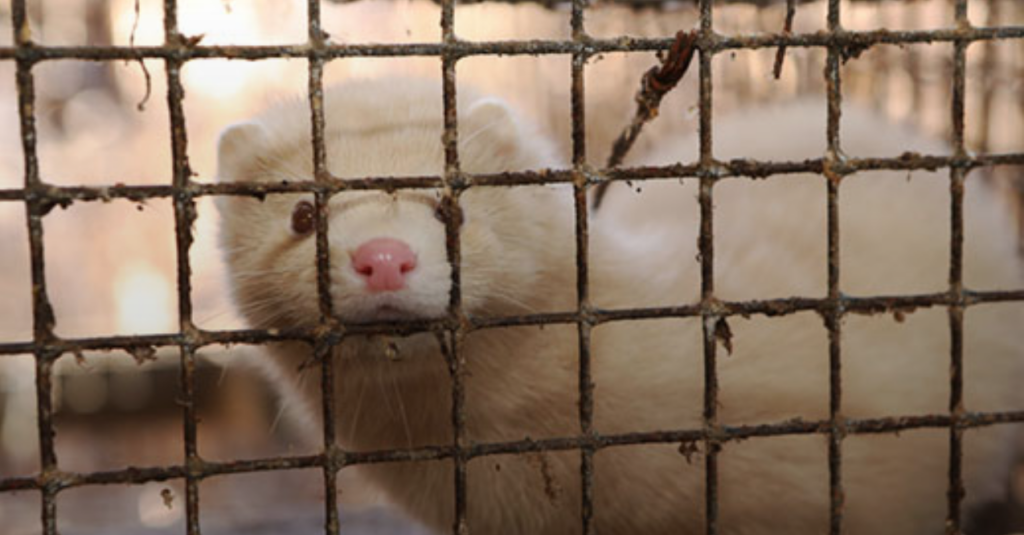3L Arlene Lopez on a letter she wrote and public comment she gave on behalf of Harvard Law School’s Animal Law & Policy Clinic prior to Cambridge City Council’s decision to ban the sale of fur.
Via Animal Law & Policy Program
By Arlene Lopez ’23

Last night (Monday, October 24), the Cambridge City Council unanimously passed an ordinance banning the sale of fur. Cambridge is the fifth municipality in Massachusetts to ban fur, joining Wellesley, Weston, Brookline, and Plymouth.
The push to ban fur in Cambridge started with Liza Oliver, a Cambridge resident and founder of Fur Free Massachusetts. Liza, alongside the Massachusetts Society for the Prevention of Cruelty to Animals, was the driving force behind this ordinance. In support of the ordinance, as a 3rd year student at Harvard Law School in the Animal Law & Policy Clinic, I submitted a letter and gave public comment on behalf of the clinic and Animal Law & Policy Program. The letter discusses the gratuitous cruelty associated with fur products, as well as the harms to the environment and human health associated with the fur industry.
The ordinance itself contains powerful findings that animals “slaughtered for their fur endure tremendous suffering,” and concludes that “the demand for fur products does not justify the unnecessary killing and cruel treatment of animals, harm to the environment, and the public health risks to the people of the City of Cambridge.”
Our written and oral comments explained that most fur comes from minks, foxes, chinchillas, and other animals bred and slaughtered on factory farms. The animals spend their lives confined to cramped, barren wire cages, where they endure fear, stress, disease, and discomfort. They are killed by gassing, anal electrocution, bludgeoning, or having their necks snapped. The stress, filth, and confinement on these farms make them ideal reservoirs of zoonotic disease, including SARS-CoV-2. Minks on factory farms infected with the disease have transmitted it back to workers and even to native wildlife. These farms also generate large quantities of as manure, feed, and carcasses, from which runoff can seep into waterways and wetlands.
A significant number of free-living animals are also trapped for their fur using leg-hold traps, snares, or drowning traps—torture devices that have been banned in Massachusetts for decades. Trapped animals experience agonizing pain and acute distress and may be left to suffer for days without food, water, or shelter before a trap is checked. In struggling to free themselves, animals may break bones or teeth, or even chew off their own limbs. These traps are indiscriminate-anyone who steps in one will be caught, whether that’s a fox, a child, a family dog, or a member of an endangered species.
This animal-friendly new law will decrease demand for a cruel and frivolous product in Cambridge, raise community awareness of the environmental, human health, and animal welfare impacts of producing fur, and ensure that Cambridge is no home to the future of fur products.
The ordinance takes effect January 1, 2023. Chris Green, Executive Director of the Animal Law & Policy Program, and Rachel Mathews, Clinical Instructor in the Animal Law & Policy Clinic, also signed onto the letter. Nirva Kapasi Patel, a Global Policy Fellow in Harvard Law School’s Animal Law & Policy Program, sits on the Board of Fur Free Massachusetts.
On Monday, October 17, Rachel and Arlene gave oral comments to council members ahead of the vote. Their comments begin at 33:50 and a short exchange between the council members is at 4:10:30.
Arlene is a 3L student at Harvard Law School where she is taking the Animal Law & Policy Clinic. She also serves as Harvard Animal Law Society’s Campus Advocacy Chair.
Filed in: Clinical Student Voices, Legal & Policy Work
Contact Office of Clinical and Pro Bono Programs
Website:
hls.harvard.edu/clinics
Email:
clinical@law.harvard.edu